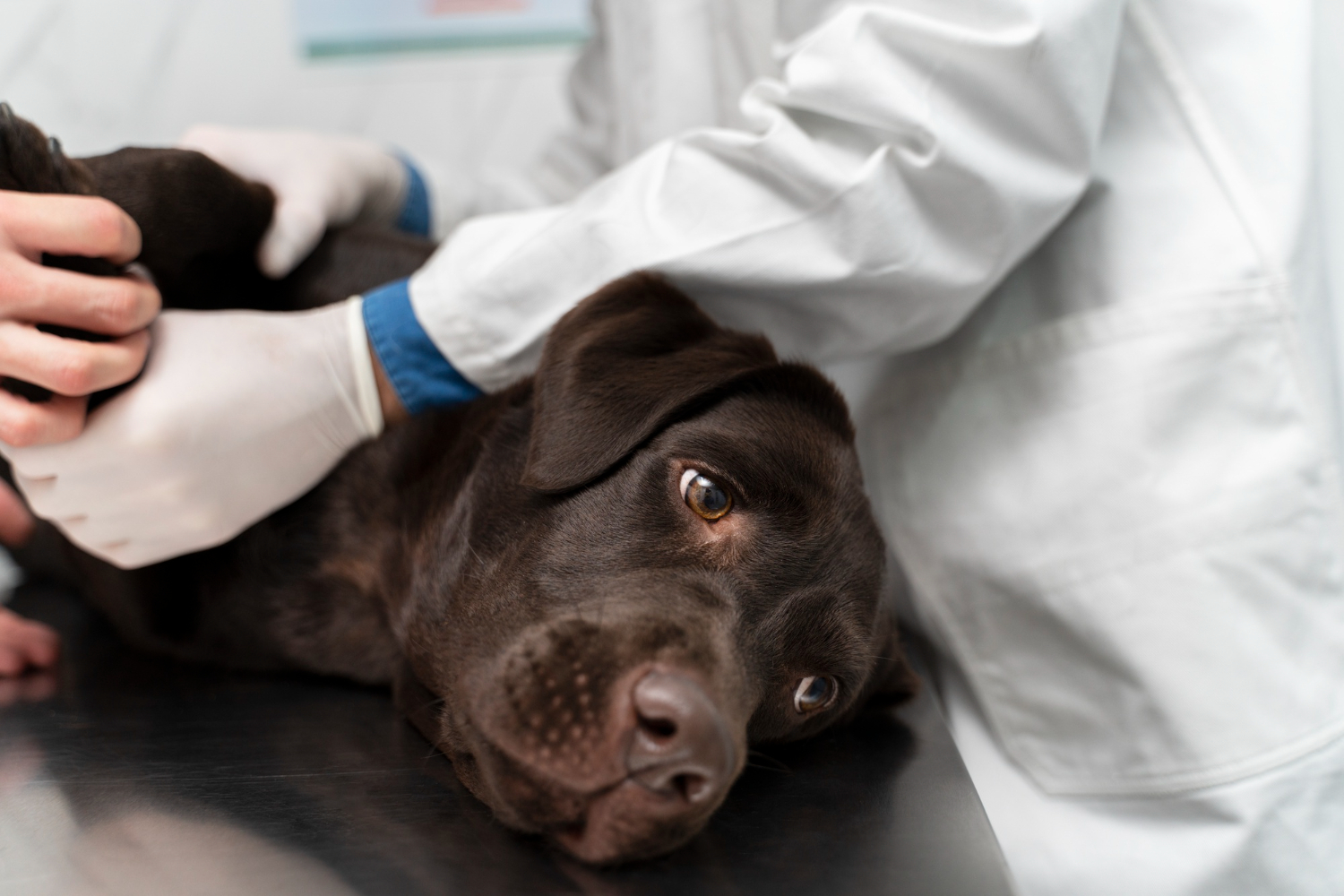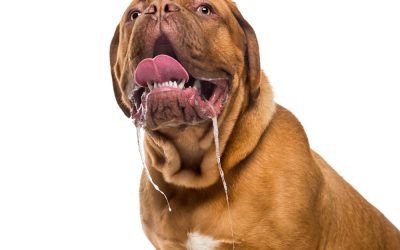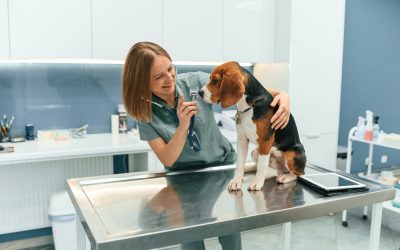Dog Shoulder Injury: Signs, Causes & Treatment Options

When your dog starts limping or avoiding their usual playtime, it can be worrying, and often, the cause might be an injury to their shoulder. Whether your dog is a couch snuggler or a high-energy adventurer, shoulder injuries can sneak up on them and cause discomfort or even long-term issues if left untreated.
Let’s take a closer look at what shoulder injuries in dogs actually are, how to spot the signs, and what you can do to help your furry friend feel better.
What Are Dog Shoulder Injuries?
Dog shoulder injuries involve damage to the shoulder joint or surrounding tissues like muscles, tendons, and ligaments. Because the shoulder joint allows for such a wide range of motion, think of all the jumping, turning, and sprinting dogs love, it’s one of the more injury-prone parts of their bodies.
These injuries can occur during playtime, such as when chasing a ball, jumping off furniture, or simply by moving awkwardly. And while some injuries may seem minor at first, they can lead to more serious issues if not treated properly.
Common Types of Shoulder Injuries in Dogs
Shoulder injuries can come in many forms, and knowing the differences can help you and your vet figure out the best course of action:
- Shoulder Luxation: This is a dislocation of the shoulder joint and can happen after a fall or other trauma. It’s painful and typically needs urgent veterinary care.
- Bicipital Tenosynovitis is often found in athletic or very active dogs, characterized by inflammation of the biceps tendon. It can cause ongoing pain if not addressed early.
- Osteochondritis Dissecans (OCD): A developmental issue where cartilage doesn’t form properly, leading to joint pain. It’s more common in large breeds and may require surgery.
Each condition may sound a little intimidating, but with early diagnosis and the right treatment plan, most dogs recover remarkably well.
Signs Your Dog May Have a Shoulder Injury
Dogs are quite adept at hiding pain, so it’s essential to closely monitor any changes in their behavior or movement. Here are some common signs that may point to a shoulder issue:
- Limping or favoring one leg
- Swelling around the shoulder area
- A drop in activity levels—your pup might not want to run or play like they usually do
- Tenderness or flinching when the shoulder is touched
- Behavioral changes like irritability or avoiding cuddling
If you notice any of these signs, it is best to consult your veterinarian promptly. Catching an injury early can make all the difference in recovery time and comfort.
What Causes Shoulder Pain in Dogs?
Dogs can develop shoulder pain for a variety of reasons, some of which may build up over time:
- Injuries from jumping, running, or rough play
- Repetitive strain, especially in dogs who compete in agility or fetch daily
- Age-related conditions like arthritis or joint degeneration
Just like us, dogs can experience the effects of wear and tear over time. When their shoulder hurts, you may also notice them losing interest in food, adopting awkward postures, or simply seeming a little off. 
Getting a Diagnosis: What to Expect at the Vet
If you’re taking your dog to the vet for a suspected shoulder injury, here’s what might happen:
- A physical exam to check mobility, pain points, and how your dog reacts to touch.
- X-rays or MRI scans to get a clearer picture of what’s going on inside the joint.
- In some cases, blood tests or fluid analysis may be used to rule out infections or other issues.
Treatment Options: What Comes Next?
As Veterinarian Rhiannon Koehler, DVM stated in the PetMD article:
Caring for Your Dog Through a Shoulder Injury
“If the veterinarian doesn’t detect any evidence of a bone injury (such as a fracture or OCD, or arthritis), they will suspect a soft tissue injury.
It’s difficult for a private-practice veterinarian to determine the exact cause of soft tissue pain in a shoulder. They are likely to treat with pain and anti-inflammatory medications like carprofen.”
If your dog continues to show signs of lameness during a follow-up visit, your veterinarian may recommend consulting a specialist for more advanced diagnostics.
These advanced tests may include an ultrasound, MRI, or shoulder arthroscopy—a minimally invasive procedure that enables the veterinarian to examine the joint directly. Sometimes, a small sample of joint fluid may be collected to rule out infections.
While certain conditions like fractures or OCD may require surgical treatment, many soft tissue injuries can be managed without surgery. In these cases, rest, medication, and careful monitoring are often enough to support recovery. However, if symptoms persist, long-term care and ongoing pain management may be necessary.
How Can Pet Insurance Help You if Your Dog Needs Treatment?
Pet insurance can be a valuable tool in managing the costs of treating a dog’s veterinary expenses. By having a pet insurance policy in place, you can have peace of mind knowing that you can provide medical care for your furry companion without worrying about the financial burden. Pet insurance can help cover the costs of veterinary consultations, diagnostic tests, medications, and even specialized treatments if required.
Reimbursement
This method is the most common for pet insurance companies. You pay out of pocket for the veterinarian bill, and then the insurance company reimburses you for what’s covered under the insurance plan. The steps look like this.
- You pay the vet bill after your dog’s visit.
- You fill out the pet insurance claim form.
- Submit the claim form and other required documentation to the insurer.
- After the claim is approved, you will be reimbursed for eligible expenses.
What Does Odie Pet Insurance Cover?
Pet insurance covers various veterinary expenses, providing financial protection and peace of mind for pet owners. Here are the details of the coverage options offered by Odie Pet Insurance:
Illness & Injury Plan
The Illness & Injury Plan is an all-inclusive insurance plan designed to cover a wide range of medical needs for your pet. This plan includes comprehensive coverage for various illnesses, injuries, and veterinary services. Some of the covered items include:
- Veterinary exams and consultations
- Diagnostics (e.g., X-rays, lab tests)
- Prescribed medications
- Surgeries and hospitalization
- Rehabilitation, acupuncture, or chiropractic treatments
- Medically necessary supplies
- Euthanasia and cremation
The Wellness Plan
The Wellness Plan is a monthly membership that focuses on preventive care and covers routine veterinary services.
- Provides reimbursements for routine care items such as wellness visits (exams and vaccines), testing and parasite prevention, dental cleanings and at-home dental care, vitamins, supplements, and more.
- Through Odie’s partnership with Petivity, a leader in smart pet products and proactive care, Wellness Plan members can also receive reimbursements for Petivity devices and health kits, as well as eligible Purina food and supplements.
- Total reimbursement up to $700 per year.



